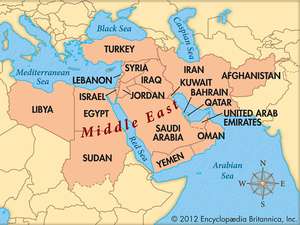By JONATHAN TOBIN-IOL
When the Trump administration released the economic portion of its Middle East peace, the avalanche of criticism was immediate and harsh.
The sticking point is clear. Palestinian Authority leaders say they want the investment and aid, but that any discussion of economics must await a political settlement in which they will be given an independent state. Only after they achieve sovereignty, they say, will the aid be welcome or relevant.
Even if we were to lay aside for the moment that the main obstacle to Palestinian liberty is the tyrannical rule of Hamas in Gaza and that of Fatah in the West Bank rather than Israel, this argument fails to answer the key question that must be posed to critics of Trump’s plan: Why have decades of peace processing by foreign-policy professionals always failed?
All previous administrations have paid some lip service to economic issues, with many issuing their own plans that were not dissimilar to the one Trump just proposed. They have all taken the approach the Palestinians say they prefer: to strong-arm Israel into agreeing to a two-state solution.
Yet, that strategy never succeeded, no matter how much pressure presidents like Bill Clinton or Barack Obama put on the Jewish state, and no matter how many times Israel said “yes” to two states as they did a number of times in the last 20 years. Foreign-policy professionals should have figured out that the old approach was never going to work.
That is, in essence, what Kushner, Greenblatt, and company have done by attempting to restart the conversation about peace in a different way.
Instead, they think emphasising policies that will give the Palestinians a stake in peace and promoting measures that will mandate good governance have the potential to change everything. You can call that an attempt to “bribe” the Palestinians into accepting peace with Israel, but all it really amounts to is a reminder that co-existence would create a better reality than the current one rooted in conflict.
The problem is that the Palestinians’ century-old war on Zionism has become inextricably linked to their national identity to the point where it is impossible for anyone inside their political structure to imagine normal life alongside a Jewish state. And even if they could make that leap of imagination, entrenched forces like Hamas and other Islamist groups, as well as the millions of descendants of the 1948 Arab refugees who continue to hold onto the false hope of erasing the last 71 years of history, won’t let them act on it.
That’s why Hamas continues to promote the “right of return” as if the eradication of the Jewish state was a viable option. And it’s why the Palestinian Authority continues to subsidise terror in the form of salaries for imprisoned terrorists, and pensions for their families and survivors, because to do otherwise would be to admit their defeat in a war they haven’t the courage or the good sense to give up on.
If Trump’s plan is going to fail – and it will – it can be attributed to these reasons. If this latest approach doesn’t work, then the blame should fall on those responsible – the Palestinians – not on the ideas behind the plan itself.
* Jonathan S Tobin is an American journalist. This is an edited version of a piece that was first published on the Jewish News Syndicate.









